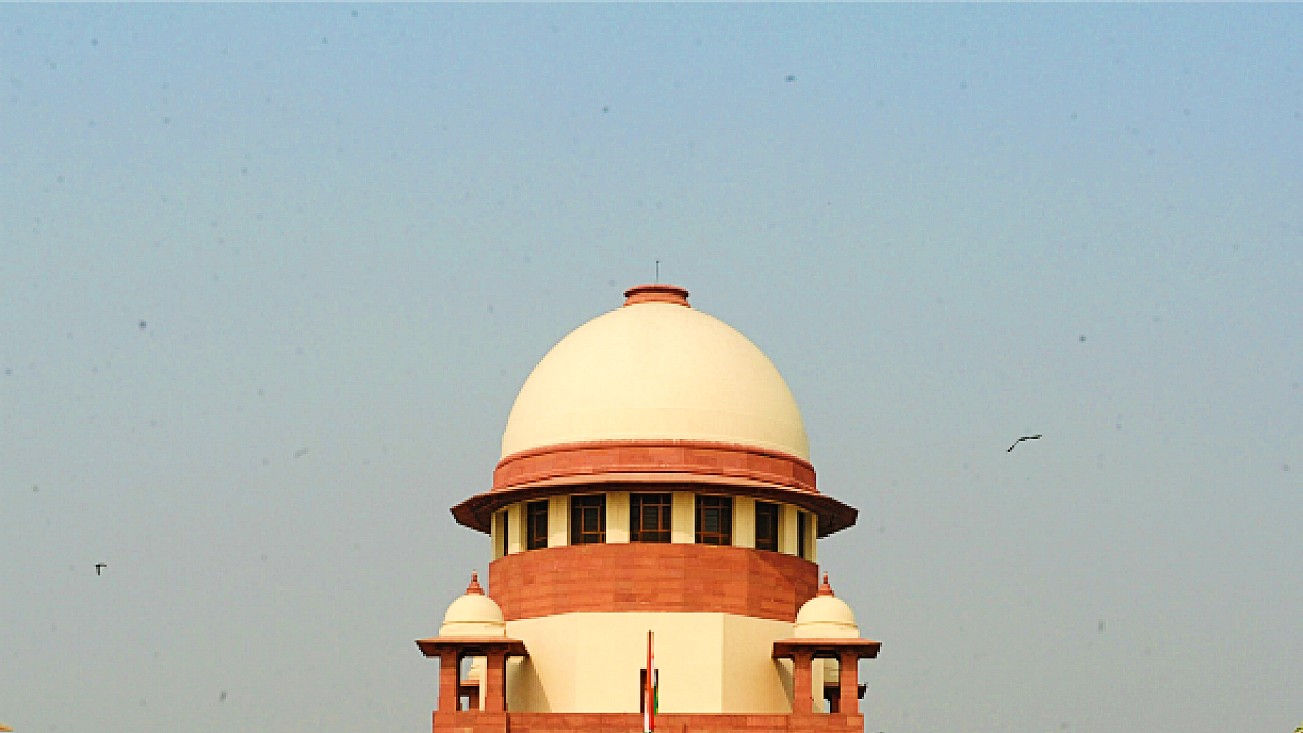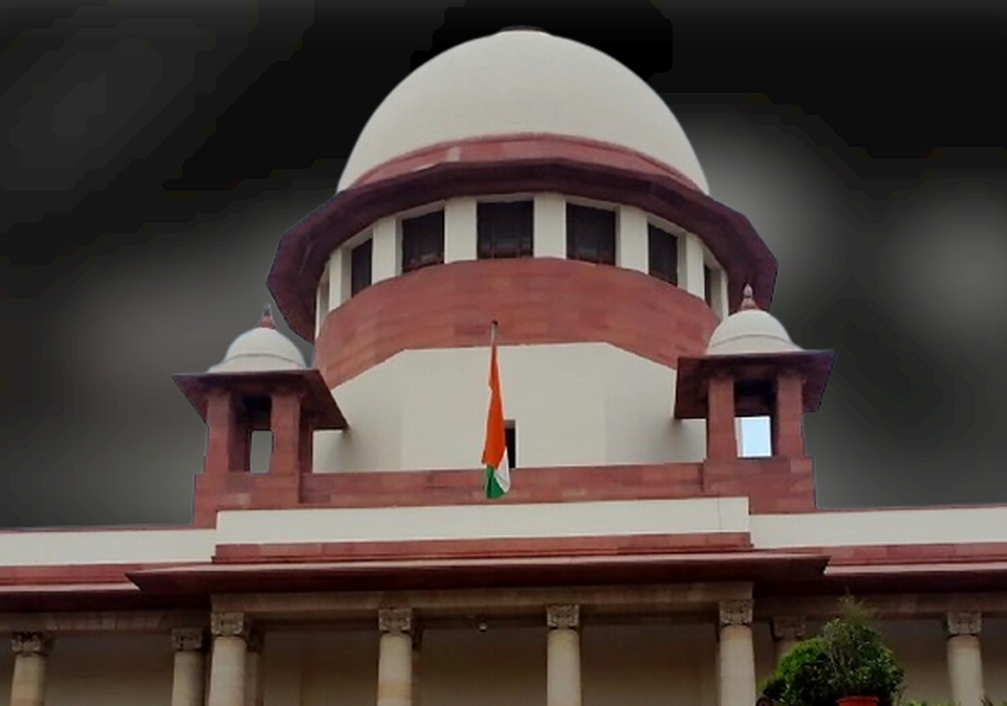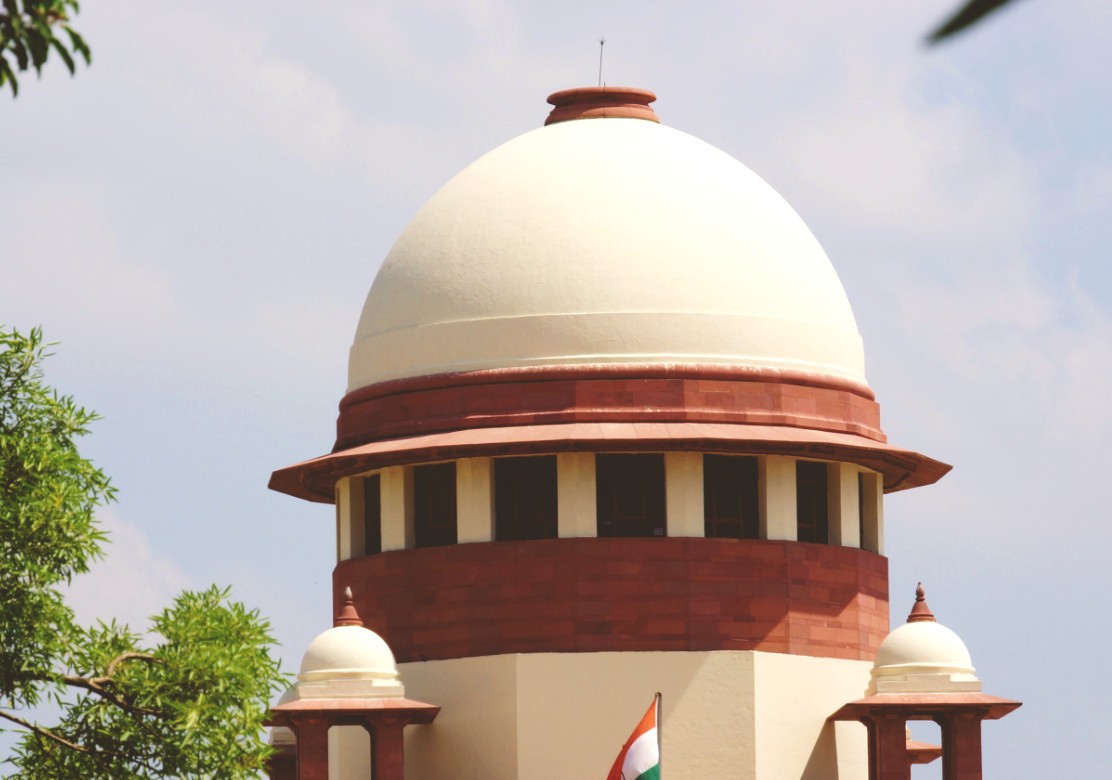Court has to decide whether order passed in terms of Minutes of Order would be lawful; Passing of order to be deferred till all necessary parties are impleaded to the proceedings: Apex Court
Justices Abhay S. Oka & Ujjal Bhuyan [30-04-2024]

Read Order: AJAY ISHWAR GHUTE & ORS v. MEHER K. PATEL & ORS [CIVIL APPEAL NO. 4786 OF 2024]
LE Correspondent
New Delhi, May 2, 2024: The Supreme Court has set aside a Bombay High Court judgment passed in terms of the Minutes of Order, as it failed to call upon the respondents to implead such persons who were likely to be affected by construction of a compound wall. The Top Court clarified that the advocates must consider whether an order, if passed by the Court in terms of the Minutes of Order, would be lawful.
Arbitration Petitions, in this case, were filed under Section 9 of the Arbitration and Conciliation Act, 1996 before a Single Judge of the Bombay High Court. Consent terms were filed in the Arbitration Petition preferred by the 1st respondent. During the pendency of the proceeding of the Arbitration Petition, Urvaksh Naval Hoyvoy was arrested by police based on a First Information Report. The dispute in the Arbitration Petitions related to the lands of Parsi Dairy Farm.
The High Court had directed the police to give police protection to the parties for completing the process of handing over possession. A compound wall was to be constructed in terms of the consent terms. The occasion for filing the application arose as, according to the 7th respondent in the Arbitration Petition, local persons obstructed the work of the construction of the compound wall. The persons who had admittedly obstructed the construction of the wall were not parties to the proceedings of either the Arbitration Petition or the interim application.
An application was filed to the Deputy Superintendent of Land Records at Talasari by the 1st respondent and five others for measuring the lands subject matter of the Arbitration Petition The Deputy Superintendent of Land Records, in his letter informed the 1st respondent that several persons named in the letter had objected to carrying out a survey. Thereafter, the 1st and 2nd respondents filed a Writ Petition under Article 226 of the Constitution regarding non-compliance with the orders in the aforesaid Arbitration Petition by the government authorities regarding carrying out the survey and construction of the compound wall. The persons who raised objections to the survey were not impleaded in the Writ Petition. The Petition was disposed of by a cryptic order directing that the Writ Petition stands disposed of in terms of the Minutes of Order taken on record.
The Division Bench of Justice Abhay S. Oka and Justice Ujjal Bhuyan noted that the Deputy Superintendent of Police and the Superintendent of Land Records stated in their respective affidavits that the tribals who own and possess various parcels of adjacent lands were likely to be affected by the construction of the compound wall.
The scenario presented before the Court was that under police protection, survey work and construction of the compound wall had been carried out by 1st and 2nd respondents. An illegality was allowed to be perpetrated under the protection of the police. Even the Government counsel did not perform his duty by submitting before the Court as an officer of the Court about the failure to implead the necessary parties.
Next, the Bench dealt with the concept of Minutes of Order, which is peculiar only to the Bombay High Court. “As a courtesy to the Court, the advocates appearing for the parties to the proceedings tender Minutes of Order containing what could be recorded by the Court in its order. An order passed in terms of the Minutes of Order tendered on record by the advocates representing the parties to the proceedings is not a consent order. It is an order in invitum for all purposes…If the Court finds that all the parties likely to be affected by an order in terms of the Minutes of Order are not parties to the proceedings, the Court will be well advised to defer passing of the order till all the necessary parties are impleaded to the proceedings”, the Bench said.
On the issue of lawfulness of the Minutes, the Bench stated, “After Minutes of Order is tendered before the Court, it is the duty of the Court to decide whether an order passed in terms of the Minutes of Order would be lawful. If the Court is of the view that an order made in terms of the Minutes of Order tendered by the advocates will not be lawful, the Court should decline to pass an order in terms of the Minutes of Order.”
It was opined that the senior district-level officials of the State had stated on oath that the construction of the compound wall, in respect of which relief was sought in the Writ Petition, would affect the rights of several third parties. However, the Court completely ignored the same. Even in clause 6 (iii) of the Minutes of Order, there was enough indication that the compound wall, if not appropriately constructed, would affect the rights of owners of the other lands.
According to the Bench, it was the duty of the Court to have called upon the 1st and 2nd respondents to implead the persons who were likely to be affected. The 1st and 2nd respondents could not have pleaded ignorance about the names of the concerned parties as they have referred to the owners of the other lands in the Minutes of Order.
It was also noted that the Division Bench of the High Court failed to make even an elementary enquiry whether third parties would be affected by the construction of the compound wall under police protection. Hence, the order passed in the Writ Petition in terms of the Minutes of Order was held to be entirely illegal.
Noticing the fact that the construction of the compound wall was complete, the Bench remanded the Writ Petition to the High Court and asked the Court to decide whether all the necessary parties likely to be affected by the construction of the compound wall in terms of the Minutes of Order were impleaded as party respondents. While doing so, the case of the petitioners’ case has also been ordered to be considered.
Sign up for our weekly newsletter to stay up to date on our product, events featured blog, special offer and all of the exciting things that take place here at Legitquest.




Add a Comment